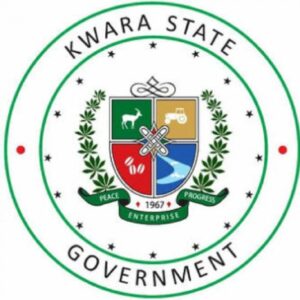
Strong regulatory system necessary for quality medicines, vaccines in low income countries — Prof. Mojisola Adeyeye
Only a strong regulatory system would guarantee and accelerate the development, approval, and access of safe and effective quality therapeutic medicines and vaccines in low, medium income countries of the world, Prof Mojisola Adeyeye, has said.
The Director General, National Agency for Food and Drug Administration and Control (NAFDAC) made the assertion while speaking at the hybrid University of California San Francisco UCSF)-Stanford Centre of Excellence in Regulatory Science and Innovation, (UCSF-Stanford CERSI) summit in the United States.
Speaking as the only panelist selected from Africa at the summit with the theme “Building a Global Vision for Product and Drug Development: Challenges and Opportunities,” Prof Mojisola Adeyeye, admonished nations on the premise of strengthening of regulatory system in compliance with the World Health Assembly Resolution 67.20 of 2014 in order to build the capacity of member states with the ultimate goal to have access to quality medicines to different low, medium income countries.
She said the WHO supports member states in reaching and sustaining effective regulatory oversight of medical products through the regulatory systems strengthening RSS programme.
She explained to the global audience how NAFDAC under her leadership used the WHO Global Benchmarking Tools to achieve the Maturity Level 3 WHO Certification Status in March 2022 and its significance to Nigeria.
“Using U.S. FDA as reference which is categorised as Maturity Level 4,” she said, “you cannot get Maturity Level 3 without taking care of all the indicators under Levels 1, and 2. You cannot get Maturity Level 4 without taking care of all the indicators in ML1, ML2 and ML3.”
Speaking on “Global Benchmarking Tool and Access to Medicines” at the annual global event, Prof Mojisola Adeyeye noted that there is no 95 or 99 percent in terms of WHO Global Benchmarking.
She noted that the GBT essentially facilitated NAFDAC to identify weaknesses and strength in licensing of products, in the manufacturers and distributors compliance, in how effective is our post marketing surveillance — are we doing containment of market control in terms of illicit trade, are we doing well in terms of regulatory inspection; Good Manufacturing Practice compliance, are the manufacturers adhering to that? How good are our laboratories?
In a statement by NAFDAC media consultant, Sayo Akintola, in Lagos on Wednesday, Prof. Mojisola Adeyeye, disclosed to the summit that NAFDAC was benchmarked on seven functions plus licensing establishment which is under the Pharmacy Council of Nigeria (PCN) jurisdiction, stressing that both agencies were benchmarked together.
She said the Agency met and satisfied 268 indicators and 860 recommendations, adding that the 268 indicators were distributed under Maturity Levels 1, 2, 3, and 4.
“We were able to attain Maturity Level 3 after meeting all the requirements. We were declared in March 2020.”
She however, noted that attaining Maturity Level 4 would not be too difficult, adding that “some of the standards or indicators we have already met.” She said her Agency is working round the clock as she has already set out targets for Maturity Level 4.
According to Prof Mojisola Adeyeye, there is what is called the World Listed Authority where it’s almost like a specialised grouping, adding that part of Maturity Level 4 indicators also applies to World Listed Authority.
“We are working for both in order to ensure that our system is well established and stable and well-functioning as a regulatory agency.”
In low middle income countries, she said testing is sacrosanct unlike FDA where products are not tested because the system works. In low middle income countries, she added that testing has to be conducted because of propensity for substandard falsified medicines.
The NAFDAC boss pointed out that commitment from top management of the regulatory agencies is required to get Maturity level 3 which is the minimum required in terms of well-functioning and stable regulatory system.
“I took over as DG NAFDAC in November 2017. Right from the beginning my experience in the U.S. in terms of Quality Management System was brought to bear. We committed to Global Benchmarking using Quality Management System as a baseline.”
Prof. Mojisola Adeyeye however, emphasised the importance of reliance for different regulatory agencies in the world. She said reliance represents a smarter way of regulating medical products through collaboration, shared knowledge, experience, and resources. The Reliance is among the different functions such as regulatory inspection, lab testing, clinical trials, market authorisation, pharmacovigilance, market control and licensing establishment.
She further explained that there is a lot of reliance within different functions and there has to be a reliance between agencies, adding that agencies have to collaborate, identify weak links and leverage on the experience of others, mentor other MNRAs.
She said that NAFDAC is doing that right now in terms of Traceability and GBT, noting that Reliance is also facilitated within the West African region and between regions.
“Uganda came to us, and we have been interacting on different aspects of our regulatory activities. Reliance promotes good regulatory practices which is the focus. It helps bring trust amongst NRAs and allow NRAs to seize the opportunity to strengthen themselves.
“It’s extremely important to strengthen the regulatory system. There cannot be local manufacturing without a strong regulatory system. As far as NAFDAC is concerned we use a lot of tools to ensure that our products are more affordable and are of high quality using different GMP inspection.”
She disclosed that the Agency employs detection devices to get rid of infiltrations in the supply chain.
“We use enforcement. We work with Interpol, The FBI and of course, we use vigilance within the country and outside the country. NAFDAC is now known using traceability Track and Trace GS1 to monitor falsified medicines. We used that for vaccines during the Pandemic.”
She opined that clinical trials could be optimised to make medicines and vaccines affordable and affordable to the low, medium income countries. She disclosed that Nigeria is fortunate to be funded by the Gates Foundation in terms of using Design Assessment and Community approach to develop our clinical trials data base or platforms.
She however, said that the importance of informativeness cannot be over-emphasised because it has to be subject-centric.
“If we do not consider the subject when we are designing or during the course of study then it’s very likely that a low percentage of success rate will be achieved.”
She said the Agency started using the DAC system in 2019 just before the Pandemic “and we have our own electronic clinical application platform.”
For research funders and investigators, she said using the informative approach mitigates risks; it’s hypothesis-driven, it increases likelihood of moving an intervention to a cure. It also ensures that there is confidence that is built in them.
She commended the community involvement, stressing that it helps in no small measure.
“We were quite successful in that particular clinical trial that culminated in us getting an IND approval from the US.”
The event was UCSF-Stanford Center of Excellence in Regulatory Science and Innovation (UCSF-Stanford CERSI) fourth annual Innovations in Regulatory Science Summit, a gathering of leaders in the academia, industry, and regulatory sectors to discuss the role of regulatory science in medical product development.
Other members of the panel of discussants included, Emer Cooke, MBA – Executive Director of the European Medicines Agency (EMEA); Frank Gupton, PhD – Floyd D. Gottwald, Jr. Chair in Pharmaceutical Engineering and Chair, Professor, Department of Chemical and Life Science Engineering at Virginia Commonwealth University; Peter Marks, MD, PhD – Director, Center for Biologics Evaluation and Research (CBER) at FDA; Jacques Mascaro, PhD, MBA – Senior Vice President, Global Head of Oncology Regulatory Science and Strategy at AstraZeneca.



